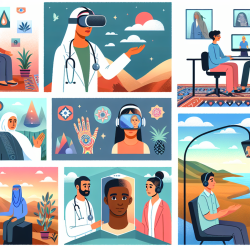Integrating Ethics in Public Health Education: A Pathway to Better Outcomes
In today's rapidly evolving health landscape, the importance of integrating ethics into public health education cannot be overstated. The research article, Integrating ethics in public health education: the process of developing case studies, provides valuable insights into how ethics can be effectively woven into educational curricula, thereby enhancing the quality of public health practice.
Why Ethics Matter in Public Health
Ethics in public health is not merely an academic exercise; it is a crucial component that guides decision-making and policy development. The historical context, as discussed in the article, highlights the atrocities of the past, such as the Tuskegee Experiment, which underscore the necessity for ethical standards in health practices. Ethics education in public health aims to prevent such injustices by fostering a culture of justice, equity, and respect for human rights.
The Role of Case Studies
Case studies are a pivotal tool in ethics education, providing real-world scenarios that challenge students and practitioners to apply ethical principles. The article emphasizes the development of case studies that are peer-reviewed and designed to simulate real-life ethical dilemmas. These case studies serve as a bridge between theoretical knowledge and practical application, allowing practitioners to explore complex ethical issues in a controlled environment.
Implementing Ethics in Online Therapy Services
For companies like TinyEYE, which provide online therapy services to schools, integrating ethics into practice is essential. Online therapy presents unique ethical challenges, such as maintaining confidentiality and ensuring equitable access to services. By incorporating ethics education into training programs, practitioners can be better equipped to navigate these challenges and make informed decisions that prioritize the well-being of their clients.
Encouraging Further Research
The article encourages further research into the integration of ethics in public health education. Practitioners are urged to engage with the latest findings and consider how ethical frameworks can be applied to their specific fields. By staying informed and actively participating in ongoing ethical discussions, practitioners can contribute to the development of more effective and equitable health services.
Conclusion
Integrating ethics into public health education is not just about compliance; it's about fostering a culture of ethical awareness and responsibility. For practitioners in the field of online therapy, understanding and applying ethical principles can lead to better outcomes for children and communities. To delve deeper into the research and explore the development of ethics in public health education, I encourage you to read the original research paper: Integrating ethics in public health education: the process of developing case studies.










